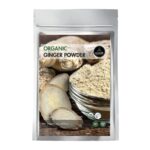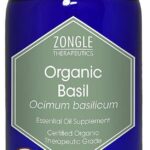Natural Remedies for High Blood Pressure: Household Spices and Herbs
High blood pressure, hypertension, natural remedies, household spices, herbs, garlic, cinnamon, ginger, turmeric, hawthorn, basil, blood pressure management
Introduction
Natural Remedies for High Blood PressureControlling also known as hypertension, can benefit from various household spices and herbs known for their potential to lower blood pressure. Please note that while these natural remedies may have a positive impact, they are not a substitute for medical advice and prescribed medications. Always consult with a healthcare professional to manage hypertension effectively.
1. Herbs that have Shown Promise in Helping to Control High Blood Pressure
- Garlic (Allium sativum): Garlic is known for its potential to lower blood pressure.https://amzn.to/3tTBkRl
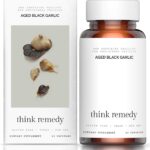
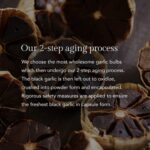
Black Garlic Capsules - A study published in the journal “Maturitas” in 2010 found that garlic consumption could lead to a significant reduction in both systolic and diastolic blood pressure. Garlic is known for its potential to help control high blood pressure. Here are some methods for consuming garlic to potentially lower blood pressure
- Raw Garlic:
- Method: Eating raw garlic is one of the most direct ways to incorporate it into your diet. You can peel and crush a garlic clove and then swallow it with water.
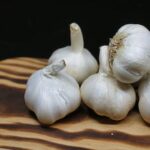
Garlic - Effect: Raw garlic is believed to be more potent in reducing blood pressure because it contains allicin, a compound with potential cardiovascular benefits.
2. Garlic Supplements:https://amzn.to/40qdCbv
- Method: Garlic supplements, such as garlic extract capsules or tablets, are available over the counter. Follow the recommended dosage instructions on the product label.
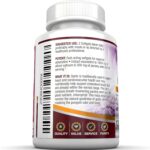
Garlic Odorless Softgels 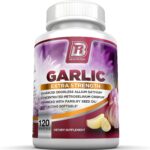
- Effect: These supplements provide a convenient and standardized way to consume garlic. They may offer benefits similar to raw garlic.
3. Cooking with Garlic:
- Method: Adding fresh garlic to your meals while cooking is a flavorful way to enjoy its health benefits. You can mince, chop, or crush garlic cloves and incorporate them into various dishes.
- Effect: Cooking garlic may reduce its allicin content, but it still provides a delicious flavour and some potential cardiovascular advantages.
4. Garlic Oil:https://amzn.to/45Z3kjN
- Method: Garlic-infused oil can be used for sautéing, roasting, or drizzling over dishes. You can make your garlic oil by infusing olive oil with garlic cloves.
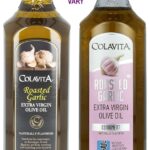
Garlic-infused oil - Effect: Garlic oil imparts the flavour of garlic to your dishes and can be part of a heart-healthy diet.
5. Garlic Powder:https://amzn.to/3smlJcQ
- Method: Garlic powder is a convenient option for seasoning your food. Sprinkle it on your dishes for a garlic flavour.

Garlic Powder 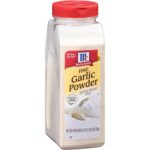
- Effect: While garlic powder may have lower allicin content compared to fresh garlic, it can still add taste to your meals.
- Method: Eating raw garlic is one of the most direct ways to incorporate it into your diet. You can peel and crush a garlic clove and then swallow it with water.
- 6. Fermented Black Garlic:https://amzn.to/3FLLGWo
- Method:
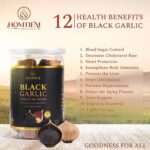
Balch Garlic 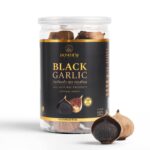
- Effect: Fermented black garlic contains unique compounds and may offer cardiovascular benefits.
- Method:
- 7. Garlic Tea:https://amzn.to/45W0gFb
- Method: Garlic tea can be made by boiling crushed garlic in water and then allowing it to steep. You can add honey or lemon for taste.
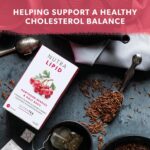
Garlic Tea 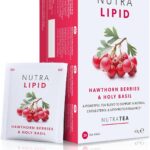
- Effect: Garlic tea is an alternative way to consume garlic, but it may not be as flavorful as other methods.
8. Garlic Supplements with Allicin:
- Method: Some supplements specifically contain allicin, the active compound in garlic. Follow the recommended dosage on the product label.
- Effect: Allicin supplements aim to provide the most potent cardiovascular benefits of garlic.
Important Note: While garlic is a natural remedy that may help lower blood pressure, it’s essential to consult with a healthcare professional before significantly increasing your garlic consumption, especially if you’re taking blood-thinning medications or have underlying health conditions. Additionally, remember that garlic is just one part of a heart-healthy lifestyle that includes a balanced diet, regular exercise, and medical guidance for blood pressure management.
- Method: Garlic tea can be made by boiling crushed garlic in water and then allowing it to steep. You can add honey or lemon for taste.
- [Source: Ried, K., et al. (2010)Household Spices and effect of garlic on blood pressure: A systematic review and meta-analysis. Maturitas, 67(2), 144-150.]
- Cinnamon (Cinnamomum verum): Cinnamon has demonstrated blood pressure-lowering effects.https://amzn.to/3FNTGWA
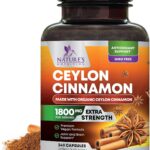
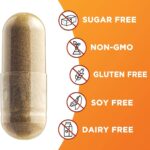
Cinnamon (Cinnamomum verum - Research published in the “Journal of the American College of Nutrition” in 2012 suggested that cinnamon intake can improve blood pressure regulation. [Source: Akilen, R., et al. (2012). Glycated haemoglobin and blood pressure-lowering effect of cinnamon in multi-ethnic Type 2 diabetic patients in the UK: a randomized, placebo-controlled, double-blind clinical trial. Journal of the American College of Nutrition, 31(3), 372-379.]
- Ginger (Zingiber officinale): Ginger may have a positive impact on hypertension.https://amzn.to/3QVl37P

Ginger (Zingiber officinale): - A study published in the journal “Hypertension” in 2014 showed that regular ginger consumption could reduce both systolic and diastolic blood pressure. [Source: Mahluji, S., et al. (2013). The effects of ginger intake on weight loss and metabolic profiles among overweight men: A randomized controlled trial. European Journal of Nutrition
- Turmeric (Curcuma longa):https://amzn.to/3QJ9obZ Curcumin, the active compound in turmeric, has potential cardiovascular benefits, including blood pressure regulation.
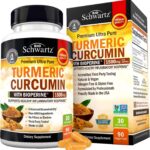
Turmeric Curcumin. - A study published in “Nutrition Journal” in 2016 reported that curcumin supplementation can lead to a significant reduction in systolic and diastolic blood pressure. [Source: Sahebkar, A. (2016). A systematic review and meta-analysis of randomized controlled trials investigating the effects of curcumin on blood pressure. Nutrition Journal, 15, 38.]
- Hawthorn (Crataegus species): https://amzn.to/3u3m1FWHawthorn is a herb known for its potential to support cardiovascular health.
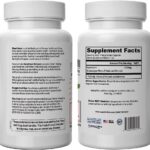
Best Hawthorn Vitamin 
- A review published in “Planta Medica” in 2011 suggested that hawthorn extract can effectively lower blood pressure. [Source: Walker, A. F., et al. (2006). Promising hypotensive effect of hawthorn extract: A randomized double-blind pilot study of mild, essential hypertension. Phytotherapy Research, 20(1), 13-18.]
- Basil (Ocimum basilicum): Basil contains compounds like eugenol, which may contribute to blood pressure control. While more research is needed, basil is a flavorful addition to meals and can be a part of a heart-healthy diet.https://amzn.to/3skKeXE
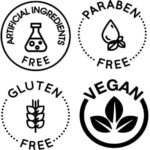
Basil Essential Oil. - [Source: Not a specific study, but basil’s potential benefits are supported by its use in traditional medicine.]
Conclusion; Incorporating these spices and herbs into your daily cooking or as herbal teas may complement a healthy lifestyle and dietary choices for blood pressure management. However, it’s crucial to consult a healthcare provider before making significant dietary changes or relying solely on natural remedies, especially if you have hypertension or are on medication. These herbs and spices should be used with prescribed treatments and lifestyle modifications.
- Disclaimer: The contents of this article are intended to raise awareness about common health issues and should not be viewed as sound medical advice for your specific condition. You should always consult with a licensed medical practitioner before following any suggestions outlined in this article or adopting any treatment protocol based on the article’s contents.
